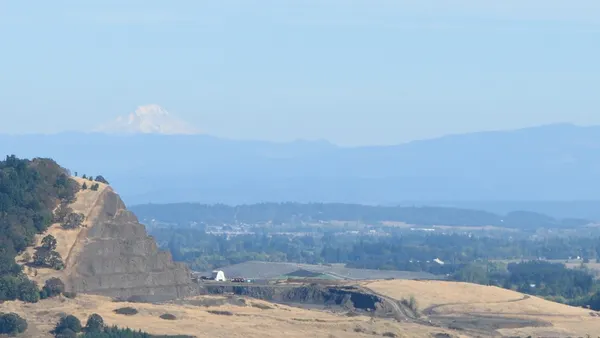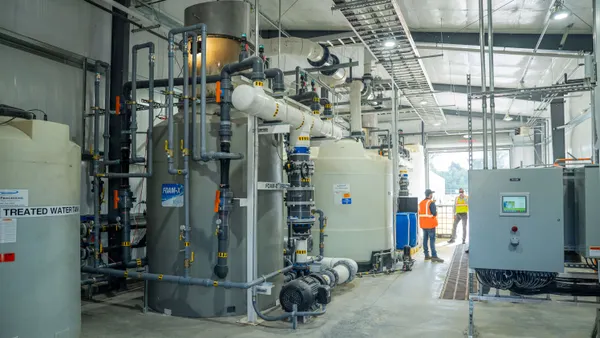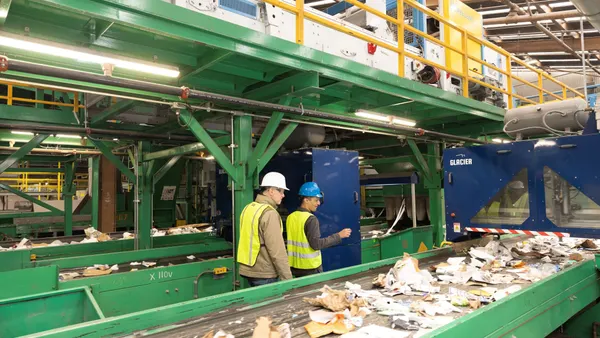Dive Brief:
- The New Jersey Department of Environmental Protection (DEP) announced plans for a large remediation project at the Municipal Sanitary Landfill Authority 1D Landfill in the town of Kearny. The $39.4 million endeavor is estimated to take two years, as reported by NorthJersey.com.
- One of the main features will be a containment wall up to 50 feet deep designed to stop leachate from entering the Passaic River. Once completed, the containment wall will help capture 83,000 gallons of leachate per day for treatment by the Passaic Valley Sewerage Authority. Also planned is a gas capture system which, once installed, will flare the site's methane.
- Remediation plans have been discussed for decades and once had potential for former landfill operators or users to help pay for them. Those plans never materialized and the money will now be coming from taxpayers funds. Both the state and local environmental group Hackensack Riverkeeper characterized this as less than ideal.
Dive Insight:
This locally notorious site originally opened in the 1970s and took in all manner of materials over the years — waste oil, pharmaceutical material, sewage sludges, asphalt sludges and insecticides from throughout the region. The site reached capacity in 1982 and was forced to close by the DEP, though was never properly sealed. The DEP began investigating issues at the site in 1999, including contamination from metals and other substances, but didn't move forward at the time.
Now, the site will be getting the attention many in the area have long called for as part of a larger clean-up along the Passaic River. The project will become the responsibility of whomever takes over for Governor Chris Christie next year. It has been characterized as "one of the largest landfill remediation projects that the DEP has ever directly undertaken" by the agency's commissioner.
New Jersey's DEP has been working to update guidelines around "legacy landfill" requirements, but establishing responsibility for remediation of old sites is often difficult and in some cases governments end up paying the bill. Examples of this have occurred in New York, Indiana, New Hampshire and elsewhere within the past year.










